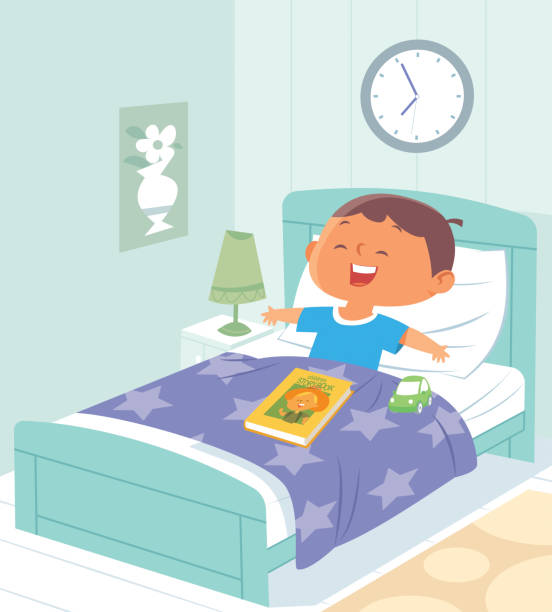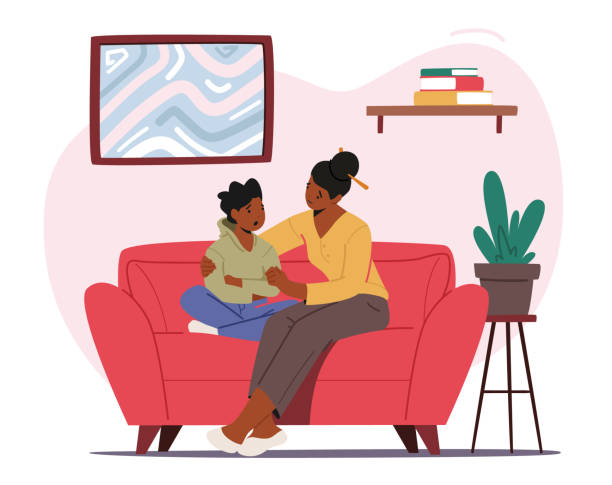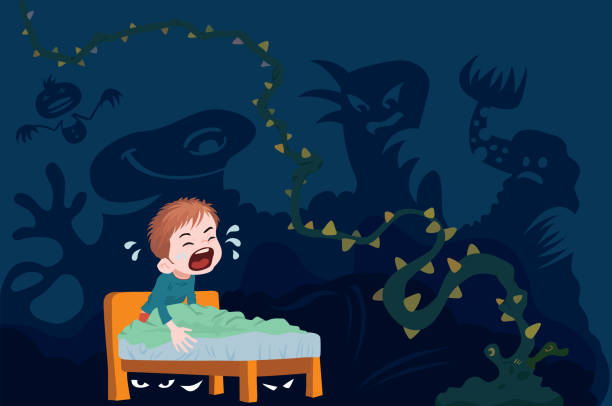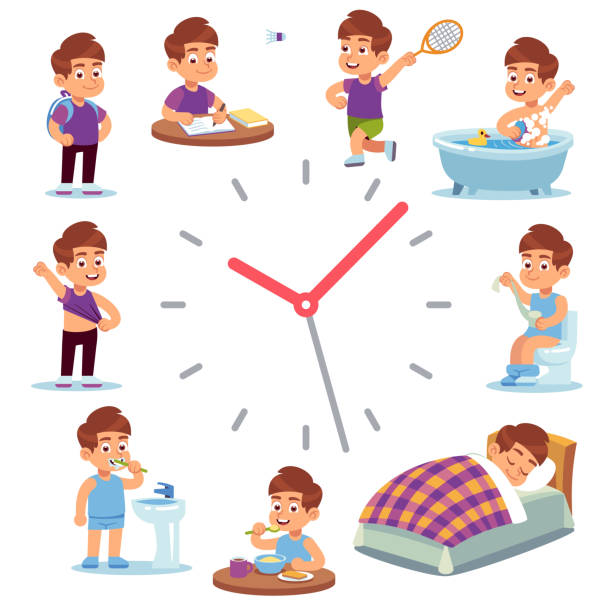Sleep Problems in Kids Are Not Uncommon!
Are you losing sleep over your child’s sleep? Does your child often wake you up because of not having proper sleep at night? Do they feel restless during bedtime? You’re not alone! The reality is that the sleep problems in kids are common and even more common in children with autism, developmental disabilities, and attention deficit hyperactivity disorder. As a parent you must be knowing that sleep problems in kids can affect the entire family, creating stress and lost sleep for parents too.
Good sleep is mandatory for a balanced and healthy lifestyle. Having a good sleep at night completely relaxes us and makes us ready for the next day with full energy. Whereas on the other hand if there is trouble having a good sleep it may end up making you feeling lousy throughout the day. It is not only adults who face sleep problems at night but kids too can have issues regarding slumber at night. This may end up in them performing badly in their daily routine activities. Feeling sleepy in between studies, lethargic, and less energetic.
How Much Sleep Does Your Child Need?
Before tracing the roots and causes associated with sleep problems in kids, you must know about the child bedtime and hours of sleep your child needs. To perform at their best ability and capacity kids require more sleep than adults. We have mentioned the required sleeping time for your child of respective age groups for a better understanding.
| Age Group | Sleep Time Required |
| Infants: 4-12 months | 12-16 hours |
| Toddlers: 1-2 years | 11-14 hours |
| Children: 3- 5 years | 10-13 hours |
| Children: 6-12 years | 9-12 hours |
| Teens: 13-18 years | 8-12 hours |
Tips To Wave Goodbye To Sleep Problems In Kids
With some proper tips, you will find a certain way of getting kids to go to bed and help your child get rid of sleep problems. As said precaution is better than cure here are a few precautions to wave goodbye to no goodnight sleeps.

Engaging in Physical Activities
Engaging in some kind of physical activity is essential to broaden the horizons of the child and introducing him to a diversity of options to explore. Activities such as sports, dance, swimming not only help in gaining a skill but also due to the physical moment of the body the child gets tired and will have fewer sleep problems.
Reading A Storybook
Reading a storybook or something light-hearted helps in relaxing the mind and ends the day in a positive note. Reading requires attention and after investing energy in different sets of activities throughout the day the mind is already left with very little energy. Slowly the child will fall asleep.
No Phones Allowed 2 Hours Before Sleep
Phones light don’t let people sleep and having a vast number of activities to choose from it may engage the child late at night. For example, his favorite game on the phone might hook him and he may not want to give the phone away. Or, if the phone is snatched and is immediately asked to sleep he might keep thinking about the game which will eventually end up giving rise to sleep problems. Thereby it is advisable to have no phone zone around the bed for healthy sleep.
Have A Talk On Your Child’s Daily Activity
This will engage the kid in a conversation and as there would be already very little energy left to participate in a conversation thereby the child may fall asleep while talking. The second alternative would be if you are reciting a story this also helps in creating bedtime habit and sends a signal to the child’s mind that it’s time to sleep. After doing this regularly it will create a habit for him and cause lesser efforts to fall asleep!

Unsettled Nights
If your kid struggles with sleep problems at night then it is important to find out the cause. It may be from nightmares, night terrors, or sleepwalking.
Nightmare is commonly known as a bad dream that exists during Rapid Eye Movement sleep. If you’re worried about your child for having a continuous occurrence of a nightmare then you would feel a bit relaxed knowing that it is prevalent in all age groups. The differentiating feature of a nightmare is that the dreamer remembers it. If your kid faces a nightmare or can’t sleep well the night before, you can have a chat regarding it in the morning.

If they feel free to talk about nightmares, you can aid them to overcome some alternatives. Tell them that nightmares are the result of their thoughts and imagination, and comfort them that this is normal and they are absolutely safe. If your children are encountering sleep-walking or night terrors during deep sleep, it’s recommended to consult a sleep specialist.
Making A Time Table With Fixed Activities
If a child has a schedule for every day it sets a pattern in his mind for the day flow. Whereas if there is no time-table the child may not adapt any pattern and get difficulties adapting to a new set of changes in the future. For example, if the breakfast time, playing time, school hours, and time for extracurricular activities are fixed for every day, the child will slowly form a fixed sleeping time and good sleep habits as well. Due to the fixed timing of everything the child will not be introduced to any irregular sleep problems and will slowly sleep on a fixed time every day.

Framing A Bedtime Routine
Having a consistent bedtime routine is a great way to enhance your child’s sleep quality and avoid the things that can get in the way of a good night slumber. A bedtime routine consists of all those things that you do with your children just before putting them into the bed. It can be given a bath, diaper change, putting on clothes, saying hymns and prayers, and reading a bedtime story, etc.



Speak Your Mind
Save my name, email and website in this browser for next time I comment